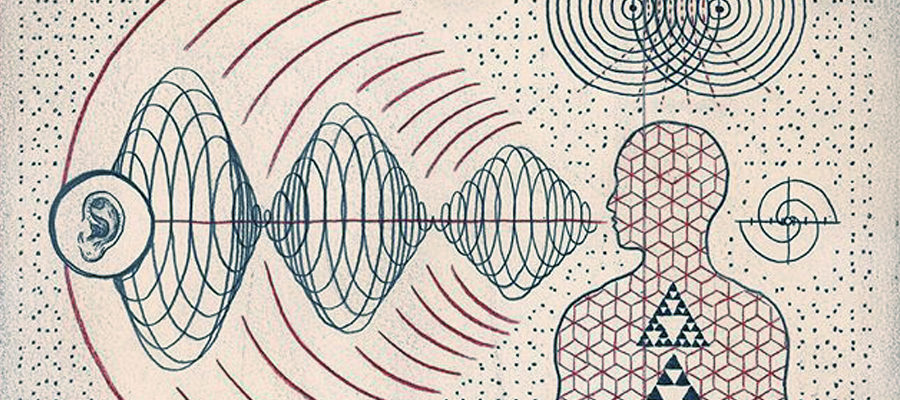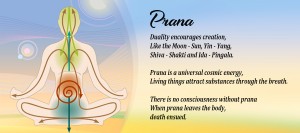A liberating voice
Why do we use sound in meditation?
By voice one becomes liberated (Anavrittih shabda ), is the concluding verse of the Brahma Sutra (4.4.22) .
How can this be? Why do we use sound in meditation? Why not use one of the senses or other faculties, since touch, sight, taste and smell must also take on a more refined form until they reach the point of arising?
It is true that these four faculties do have subtle forms, but only sound reaches the highest point of arising. The five senses correspond to the five elements which comprise all things. These elements are ether (akasha), air (vayu), fire (agni), water (apah), and earth (prithvi). That is, their crudest form is the sound form (shabda), touch (sparsha), sight (drishti), taste (rasa), and smell (gandha) as recognized by the physical senses.
We therefore use these terms to refer to them. But the water element is not just a liquid which we call water, but more than that, has roots in the astral and causal planes. The same is true for the other elements. When relative, individual or cosmic existence begins, there is a chain of manifestations. First, the awareness itself comes out.
This modification at the cosmic level is the emergence of Mahat Tattwa , the Supreme Element, namely the Person or Saguna Brahman. Within the individual this is the meaning of asmita : I-ness.
Then Pradhana (Prakriti) transforms itself into the five elements, starting with ether, and each subsequent element contains within itself some preceding element. That is, air is mixed with some ethers. Fire has several elements of ether and air. Water has fire, air and ether. Earth has water, fire, air and ether. So only ether does not mix, and only ether touches the principle of consciousness, only ether is in direct contact with the Soul.
However ether (akasha) includes all other elements as their main constituent – actually as their source and core element. Sound is the quality (or ability) of ether; touch is air quality; sight is the quality of fire; taste is water quality; and smell is earth quality. Sound, then, is the only thing that re-attains the principle of consciousness. The other elements stopped somewhere along the way. Sound, then can affect all elements.
The five elements also correspond to the five levels or bodies known as kosha : body anandamaya, jnanamaya, manomaya, pranamaya and annamaya . These are volitional, intellectual, mental (sensory), biomagnetic, and physical bodies.
The highest (most subtle) body is the etheric body ( anandamaya kosha ) which is the place for sound or speech. The other four elements have only one faculty or power, but akasha has two faculties or powers: Vak and Shabda (Speaking and Hearing).





